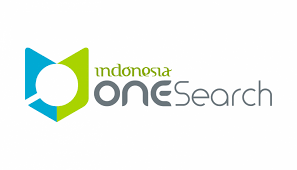The Influence of salary and organizational culture on job satisfaction of iBox Palangka Raya Employees
DOI:
https://doi.org/10.52300/jemba.v5i1.22435Keywords:
Organizational Culture, Salary, Employee Job SatisfactionAbstract
This study aims to analyze the influence of salary and organizational culture on employee job satisfaction at iBox Palangka Raya. Improving job satisfaction is important because it can positively impact employee effectiveness and loyalty, which are influenced by internal organizational factors. Therefore, a quantitative approach was used to examine the relationship between these variables. This study employed a quantitative descriptive method with the aid of SPSS version 23.0 software. The data used were primary data collected through questionnaires from 50 iBox Palangka Raya employees. The analysis showed that salary and organizational culture had a positive and significant influence of 63% on employee job satisfaction. This indicates that the better the salary structure and the stronger the organizational culture implemented, the higher the level of employee job satisfaction. These findings provide practical implications for iBox management to actively pay attention to the salary system and the development of organizational culture to create a conducive work environment. Future research is recommended to consider other variables, such as transformational leadership styles, to gain a more comprehensive understanding
Downloads
References
Abawa, A., & Obse, H. (2024). Organizational culture and organizational performance: does job satisfaction mediate the relationship? Cogent Business and Management. https://doi.org/10.1080/23311975.2024.2324127
Aranki, D. H., Suifan, T. S., & Sweis, R. J. (2019). The Relationship between Organizational Culture and Organizational Commitment. Modern Applied Science. https://doi.org/10.5539/mas.v13n4p137
Bakotić, D. (2016). Relationship between job satisfaction and organisational performance. Economic Research-Ekonomska Istrazivanja . https://doi.org/10.1080/1331677X.2016.1163946
Beuren, I. M., dos Santos, V., & Theiss, V. (2022). Organizational resilience, job satisfaction and business performance. International Journal of Productivity and Performance Management. https://doi.org/10.1108/IJPPM-03-2021-0158
Dhir, S., & Chakraborty, T. (2023). Does the perceived efficiency of the HR department matter in influencing satisfaction and employee performance? International Journal of Productivity and Performance Management. https://doi.org/10.1108/IJPPM-01-2021-0047
Dorta-Afonso, D., González-de-la-Rosa, M., García-Rodríguez, F. J., & Romero-Domínguez, L. (2021). Effects of high-performance work systems (HPWS) on hospitality employees’ outcomes through their organizational commitment, motivation, and job satisfaction. Sustainability (Switzerland). https://doi.org/10.3390/su13063226
Eklof, J., Podkorytova, O., & Malova, A. (2020). Linking customer satisfaction with financial performance: an empirical study of Scandinavian banks. Total Quality Management and Business Excellence. https://doi.org/10.1080/14783363.2018.1504621
Hewett, R., & Shantz, A. (2021). A theory of HR co-creation. Human Resource Management Review. https://doi.org/10.1016/j.hrmr.2021.100823
Huang, X., Yang, F., Zheng, J., Feng, C., & Zhang, L. (2023). Personalized human resource management via HR analytics and artificial intelligence: Theory and implications. Asia Pacific Management Review. https://doi.org/10.1016/j.apmrv.2023.04.004
Kloutsiniotis, P. V., Mihail, D. M., Mylonas, N., & Pateli, A. (2022). Transformational Leadership, HRM practices and burnout during the COVID-19 pandemic: The role of personal stress, anxiety, and workplace loneliness. International Journal of Hospitality Management. https://doi.org/10.1016/j.ijhm.2022.103177
Kosec, Z., Sekulic, S., Wilson-Gahan, S., Rostohar, K., Tusak, M., & Bon, M. (2022). Correlation between Employee Performance, Well-Being, Job Satisfaction, and Life Satisfaction in Sedentary Jobs in Slovenian Enterprises. International Journal of Environmental Research and Public Health. https://doi.org/10.3390/ijerph191610427
Kristinae, V., Sambung, R., Meitiana, Mering, L., Dwiatmadja, C., & Tunjang, H. (2023). Application of RBV theory in entrepreneurial orientation, dynamic capability and customer relationship management. Uncertain Supply Chain Management. https://doi.org/10.5267/j.uscm.2023.1.010
Kusumaningtyas, G. Y. R. T., & Wahyuddin, M. I. (2022). Implementasi Algoritma C4.5 dan Simple Additive Weight Untuk Menentukan KPI Karyawan. Building of Informatics, Technology and Science (BITS). https://doi.org/10.47065/bits.v3i4.1356
Linnenluecke, M. K., & Griffiths, A. (2010). Corporate sustainability and organizational culture. Journal of World Business. https://doi.org/10.1016/j.jwb.2009.08.006
Makhamreh, H. Z., Alsakarneh, A., Eneizan, B., & Ngah, A. H. (2022). EMPLOYEE MOTIVATION, JOB SATISFACTION, CUSTOMER SATISFACTION, AND FIRM PERFORMANCE: THE MODERATING ROLE OF EMPLOYEE EMPOWERMENT. Business: Theory and Practice. https://doi.org/10.3846/btp.2022.15316
Marler, J. H., & Boudreau, J. W. (2017). An evidence-based review of HR Analytics. International Journal of Human Resource Management. https://doi.org/10.1080/09585192.2016.1244699
Meitiana, Sambung, R., & Kristinae, V. (2023). Entrepreneurship Assistance to SMEs and Batik Centers National PKM Activities in Giriloyo Batik Village, in the Special Region of Yogyakarta, Indonesia. Asian Journal of Community Services. https://doi.org/10.55927/ajcs.v2i9.6251
Nemteanu, M. S., & Dabija, D. C. (2021). The influence of internal marketing and job satisfaction on task performance and counterproductive work behavior in an emerging marketing during the covid-19 pandemic. International Journal of Environmental Research and Public Health. https://doi.org/10.3390/ijerph18073670
Nguyen, N. P., Hang, N. T. T., Hiep, N., & Flynn, O. (2023). Does transformational leadership influence organisational culture and organisational performance: Empirical evidence from an emerging country. IIMB Management Review. https://doi.org/10.1016/j.iimb.2023.10.001
Nurdiansyah, R., Mariam, S., Ameido, M. A., & Ramli, A. H. (2020). Work Motivation, Job Satisfaction and Employee Performance. Business and Entrepreneurial Review. https://doi.org/10.25105/ber.v20i2.8006
Paais, M., & Pattiruhu, J. R. (2020). Effect of Motivation, Leadership, and Organizational Culture on Satisfaction and Employee Performance. Journal of Asian Finance, Economics and Business. https://doi.org/10.13106/JAFEB.2020.VOL7.NO8.577
Peridawaty, Toendan, R. Y., & Wenthe, I. K. (2021). The effects of entrepreneurial orientation and organizational learning on marketing capability in supply chain management. Uncertain Supply Chain Management. https://doi.org/10.5267/j.uscm.2020.12.005
Saifulina, N., Carballo-Penela, A., & Ruzo-Sanmartín, E. (2020). Sustainable HRM and Green HRM: The Role of Green HRM in Influencing Employee Pro-environmental Behavior at Work. Journal of Sustainability Research. https://doi.org/10.20900/jsr20200026
Strengers, J., Mutsaers, L., van Rossum, L., & Graamans, E. (2022). The organizational culture of scale-ups and performance. Journal of Organizational Change Management. https://doi.org/10.1108/JOCM-09-2021-0268
Sumardjo, M., & Supriadi, Y. N. (2023). Perceived Organizational Commitment Mediates the Effect of Perceived Organizational Support and Organizational Culture on Organizational Citizenship Behavior. Quality - Access to Success. https://doi.org/10.47750/QAS/24.192.45
Wang, L., Zhou, Y., & Zheng, G. (2022). Linking Digital HRM Practices with HRM Effectiveness: The Moderate Role of HRM Capability Maturity from the Adaptive Structuration Perspective. Sustainability (Switzerland). https://doi.org/10.3390/su14021003
Ybema, J. F., van Vuuren, T., & van Dam, K. (2020). HR practices for enhancing sustainable employability: implementation, use, and outcomes. International Journal of Human Resource Management. https://doi.org/10.1080/09585192.2017.1387865
Yuanita Toendan, R. (2022). Pengaruh Retensi Pegawai dan Lingkungan Kerja Terhadap Kinerja Pegawai Kecamatan Jekan Raya, Palangka Raya. Jurnal Manajemen Sains Dan Organisasi. https://doi.org/10.52300/jmso.v3i3.8384











